Labor Day
Calling someone the low man on the totem pole is misusing what the low man on the totem pole meant to Native Americans.
For the natives near Ketchikan Alaska, where we visited this summer, totem poles told stories. Often they told the story of the family who carved them. And the lowest figure on the pole often was the most important.
In America, we think of the low man as the least important: the yeoman, the laborer, the intern. It’s an interesting point of disparity between the way we live and the way those who lived on the land before us live. For many Americans, work is a means to an end. Work is an endless climb up the the ladder of success toward, ultimately, more money and better status.
In the totem pole of our culture, it pays to be on top. In fact, we tend to think of most hierarchies like a human pyramid, the higher you are, the better the view, the less weight you have to carry. We value being at the top so much that we don’t care what people have to do to get there. “Making it” grants a pardon for whatever it took to get there because making it is all that matters.
Labor Day is proof that the low man is stepped on to begin with.
If one day belongs to the worker, who owns the other 364 days of the year? I’m not writing a manifesto, I’m only narrowing in on something that’s been on my mind this week: how work impacts recovery.
I had the privilege of reading a pre-release copy of Amy Dresner’s My Fair Junkie.
The book is out on September 12. My review is up on Medium. I related closely to Dresner’s experiences of work in early recovery. At first, she dreaded having community service hours, sentenced to menial work with the salt of the earth. When her commitment ended, she was crying because she didn’t want to leave the group. I’ve been there. I’ve experienced the sort of satisfaction in a hard day’s work that makes me forget that picking up a drink or a drug is even an option.
My sponsor reminds me of this often when I call him after work to complain, usually in the springtime, when the teenage boys I teach get squirrely. As winter thaws, students want out, and so do I. The days get longer and my tolerance for immaturity gets shorter. I’ve called my sponsor in the car on the way home, and he reminds me, “Did you take a drink today? No? Did you even think about taking a drink today? Thank you God!” And he’s right.
My worst day at work beats my best day drunk because I am a different person sober altogether—a person capable of a good work ethic.
And that feels good.

My roommates in LA hated that I never did the dishes.
When you’re active in an addiction, certain things just don’t matter. For me, as I wound up in full flight from reality, I didn’t care for anything that grounded me.
I was cruising at altitude with no destination, and I knew I couldn’t land safely. I couldn’t jump back to earth because I wasn’t carrying a parachute. Reality wasn’t an easy proposition because, somewhere in my subconscious, I knew it meant a violent crash.
To stand still was to suffer, so standing at the kitchen sink for a while would give me plenty of time for reality to get a hold of me and tell me all the things I didn’t want to hear.
Can you imagine what my first sober job was?
For a while I thought washing dishes during my first year sober at that cafe on the Puget Sound was a sort of punishment. God really had it out for me. I had to do for a living what I refused to do as a roommate.
But, over time, the miracle of the mundane happened. I grew to love getting dishes clean. Poetry would float through my imagination as I scrubbed. I scribbled notes on smoke breaks, frantic to catch the words before they vanished back into the ether.
I developed a positive association with work.
I also rested like never before. After working on your feet all day, you sleep like you’re drugged. When you waste no time awake, your sleep gives you a corresponding efficiency of rest, the way a battery has more room to charge when it reaches empty.
Habits change you.
I went from a procrastinator to a proactive doer. I went from a thinker to a man of action. Work habits changed my entire outlook and attitude toward life.
Now I’m the dish man at home. I unload clean dishes when the dishwasher is full. I soak pans and scrub them the following day. I set the coffee pot on a timer and refill our Brita routinely.
As an employee, I am a hard worker. In a radical example, I don’t leave school on a Friday without my Monday completely handled. I’m that freak that stays after school ends at the end of the week if need be. I do it because it makes me feel good. Thirty minutes of work at the end of a Friday improves my entire weekend. The trade-off is worth it.
And if my history of action can be simplified in a statement, it is this: I like to do most whatever feels the best.
Labor Day celebrates our country’s freedom from oppressive hours and unlivable wages for its workers. Although, we still have a long way to go toward income equality. The true low man on the totem pole, in the American vision, lives in poverty. The U.S. Census Bureau in 2014 estimated over 14% of the population lives below the poverty level. The folks who have climbed the ladder, or those born there, usually aren’t too concerned with this finding either.
I just started my ninth year in the same job. As a teacher, there’s no ladder to climb. Instead, there’s an art-form to improve and a craft to hone—I much prefer it that way. I’m exhausted at the end of each work day; I feel fulfilled.
I get paid to talk with teenagers about books.
And on Labor Day, I get a day off to reflect on how grateful I am for that.
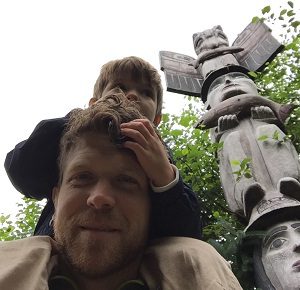
The low man on the Totem poll has his perks.
 Previous Post
Previous Post Next Post
Next Post
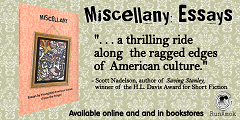
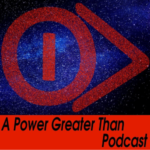

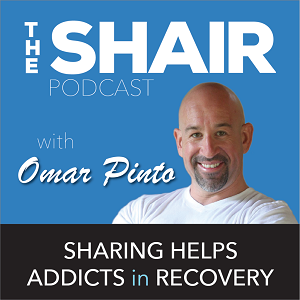

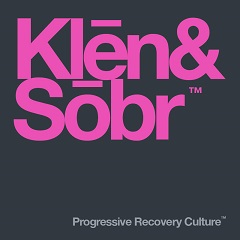

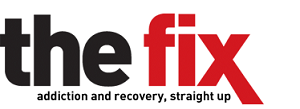




I like your description of teaching not being a ladder to climb. hmmm… maybe part of that is why I’ve been working on becoming a counsellor. Again it is an art that you adapt and improve with every client you work with.
Food for me to consider … thanks.
Yes! I think there is something to that! If you ever flesh out those thoughts, let me know.
Definitely has its perks. Such joy in our profession. Great stuff as always.
I forwarded your Sunday post to my friends in MT and WA. They loved it!! I love this post. It is amazing how so many of the wonderful things the Native Americans did that we still scoff at!
Hey! Thanks for sharing the post! I appreciate that.
The two cultures are so drastically different. I think it’s always good to respect and learn from the differences in others. Thanks Jo Ann!
I love this post! Those at the bottom of the totem pole are the strength – they hold it up.
I love when people spend a day off reflecting with gratefulness for the work they are gifted enough to do as a living. You’ve made yours a way of life. Beautiful.
Thanks for that Cher. Thanks, as always, for stopping by.
Hi Mark!!
Thank you SO much for teaching!!!
I loved teaching! I loved being enthusiastic for literature and math, science, art, to show kids how much fun learning can be! The little kids loved to learn, especially when I made it playful!
I also thank all the workers who work so hard for so little pay. If I think of all the people it takes to make things, service workers, it reminds me how interconnected we all are.
xo
Wendy
Thanks Wendy. The play is so crucial, I agree. When they think they are working, they tune out. Got to keep it playful!
I always related to the low guy on the totem pole. And never viewed it as a place to not be. Without all of the people from the bottom up, nothing works right.
That’s right! I’m glad you could relate.
I needed some of the Goodson today. Finding joy and fulfillment in the little things is about enjoying the now. How we went from using, to using life as an enjoyment propeller, by doing things that “feel best” to us, is a miracle, and is what the mundane is all about.
Always a pleasure, Mark, happy labor day!
Thanks Tate. I appreciate that. I like the way you phrased that, “enjoyment propeller.” It’s the propeller we don’t need to be high to experience! What an idea. Well, glad you stopped by, bud. Thanks for the note.
Lovely piece Mark. I too am the dish man in our house. X
It ain’t bad. Once you get the suds going, it can be sort of magical.
Love this Mark, great writing.
I was a stay at home mom for 18 years with 4 kids. When i finally did begin to work, I created my own business…..I love working! I love being busy and helping other people (you know what program I am in….there is a good reason! ?) It is rewarding…..and my job is the bottom of the bottom (literally and figuratively) but I think that someone has to do it, and I am not above anything i have to do to care for my clients. I think of Jesus washing his disciples feet…..if He could do it, so can I. I love that youa re finding the rewards in hard work, in putting the pieces together, in teaching teenagers about the love of books (that is no small thing!) They will never forget you Mark. I am so glad you are here now, in this place of rest and acceptance and gratitude for the life you have. What a gift!
Thanks Annette! And thanks for reminding me of Jesus washing his disciples feet. That is a perfect example for the joy of service.
I’m glad you’ve been able to find yourself in the role of business owner and find meaning and creativity in it.